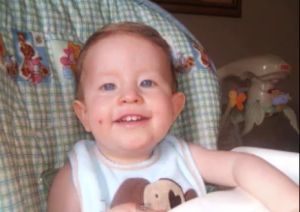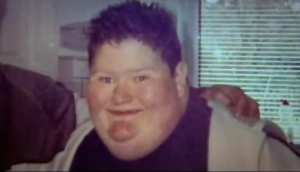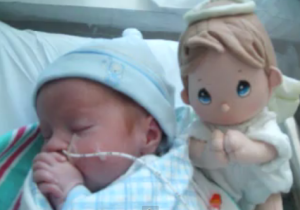Prader Willi Syndrome (PWS) occurs when the paternal chromosome number 15 is unexpressed or deleted. The affected individuals suffer from certain kinds of mental, behavioral and physical problems. Also, they exhibit extreme fondness for eating and find it extremely difficult to control the urge. As a result, people with PWS are obese. In fact this disease is the leading the cause of childhood obesity.
The treatment for Prader Willi Syndrome is targeted towards managing its symptoms and preventing secondary complications from occurring. This necessitates working with a multidisciplinary team of healthcare professionals to design a treatment plan that will address the specific needs of the patient. The treatment often includes promoting proper diet and dietary habits and addressing the mental and medical needs of the patient.
Causes of Prader Willi Syndrome
Under normal circumstances, each parent gives a copy of their chromosome to their child. In the case of Prader Willi Syndrome, an error in one or multiple genes in chromosome 15 might have occurred. Experts are still tracing down the particular gene or genes in question but they believe that the syndrome occurs due to changes or abnormalities in chromosome number 15 supposedly contributed by the father. The condition could be brought about by anomalies related to chromosome 15, such as the lack of several genes, lost or deleted critical gene or genes, or extra copies of the maternal chromosome 15 but no paternal chromosome 15.
The error may have occurred before or during conception. In rare cases, PWS is passed on by a parent carrying the defective gene onto the child. The defective gene in PWS interrupts the proper functioning of the hypothalamus, which is a part of the brain that controls the feeling of hunger and stimulates the production of substances needed for the growth and development of the reproductive system.
Prader Willi Syndrome statistics
PWS is a rare genetic disorder that affects around 1 child out of 12,000 to 15,000 births. However, it is considered a common condition due to its relationship with obesity. Most morbidly obese children had been found to have PWS. The syndrome occurs in both sexes, regardless of the ethnicity and race.
It was Alexis Labhart, Andrea Prader and Heinrich Willi, doctors from Sweden, who first described the disorder in 1956. The syndrome got its name from these doctors after diagnosing 9 children affected by the disorder.
Prader Willi Syndrome symptoms
PWS is divided into two stages with their respective manifestations.
- Stage I
The manifestations during the first stage are evident at birth and throughout the period of infancy. Babies with PWS suffer from hypotonia or weak muscle tone and have weak cries. They grow a little more slowly compared to a normal baby due to weak sucking reflexes which give rise to feeding problems. They don’t immediately respond to stimulation and they also lack eye coordination.
- Stage II
A new set of symptoms appears during the second stage of PWS, which is between the 2nd and 8th year of the child’s life. During this phase, the child exhibits food craving behaviors and slowly gains excess weight due to uncontrollable eating. The affected children also have underdeveloped reproductive organs, poor muscle mass, coupled with short feet and hands. Other symptoms of stage II PWS include developmental delays, learning, speech, sleeping and behavioral problems; Scoliosis, high tolerance of pain, light skin and nearsightedness.
PWS should not be taken lightly as this may lead to complications. Examples of these complications are:
- Sleep apnea
- Stroke
- Cardiovascular disease
- Type 2 diabetes
- Osteoporosis
- Sterility
- Gastric dilatation
Diagnosis of Prader Willi Syndrome
Prenatal and genetic testing can help doctors diagnose the disorder. Diagnostic tests are done later on to determine and diagnose childhood obesity. These tests may include abnormal level of glucose tolerance, elevated levels of carbon dioxide, unresponsiveness to luteinizing hormone and increased level of insulin.
Early detection and medical and psychological intervention can help in achieving a better prognosis for a Prader Willi Syndrome sufferer. PWS patients can live longer after following a healthy diet and lifestyle. They can live normal lives, finish school, hold jobs and live independently.
Prader Willi Syndrome treatment
PWS treatment is designed based on the individual needs of the patient, depending on his/her condition. This often involves working with a team of healthcare professionals such as psychologists and nutritionists to create and implement the most appropriate treatment plan. The treatment should help the patient get proper nourishment through healthy diet; proper growth and development through hormone treatment and therapy; and psychological care or behavioral therapy for mental and behavioral problems.
There is nothing that can be done to prevent Prader Willi Syndrome from happening. However, early detection and correct medical intervention can really make a big difference. Sufferers need enduring support from their parents and this is only possible if the parents are prepared for the hardships and lifestyle modifications posed by PWS patients.
Prader Willi Syndrome pictures








Hi Web site owner. I really just like your article and also your site all in all! That article is extremely plainly written and effortlessly understandable. Your current WordPress style is wonderful as well! Would be awesome to discover where I can get this. If possible hold up the good job. We all need a lot more such web masters just like you on the internet and much fewer spammers. Great friend!